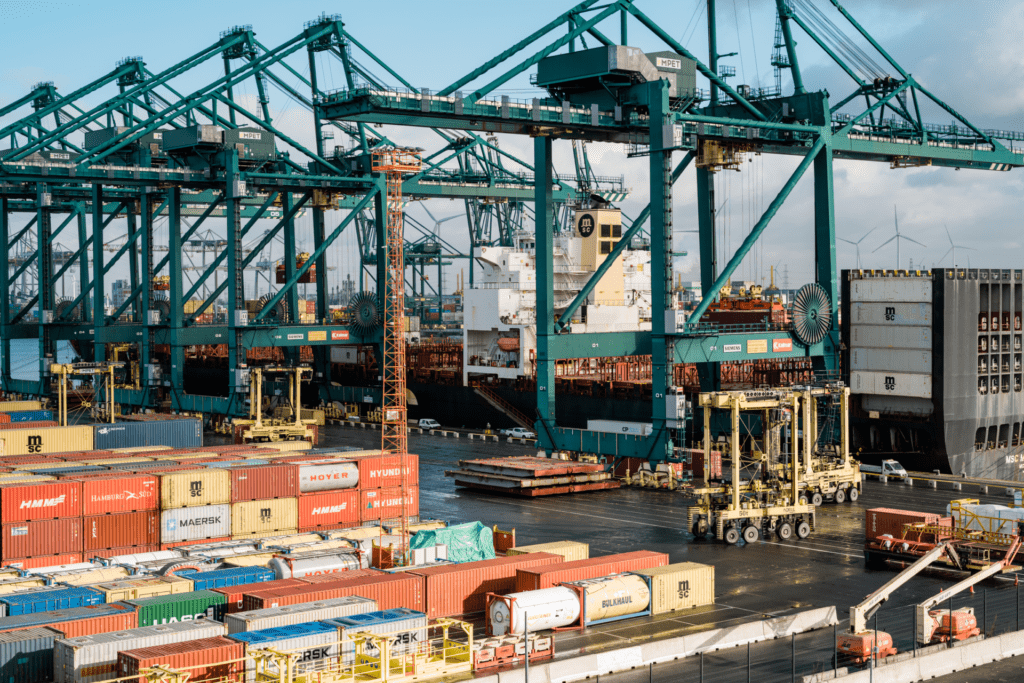While the Suez Canal is open again, the consequences for global shipping traffic will continue to be felt for quite some time, including here in Belgium.
The Port of Antwerp is Europe’s second-largest seaport, after Rotterdam, and ships will arrive and depart from it with delays, causing busy terminals and peaks in cargo.
While the Port says it’s very difficult to estimate the impact, container terminals are preparing to handle extra cargo wherever possible.
“It is going to get busier at the terminals in the port of Antwerp,” said Barbara Janssens from the Port of Antwerp's press office, who anticipates that the crowding will be felt starting next Monday.
“The first ships that sail behind the Ever Given usually first call at Rotterdam and Hamburg, and only then arrive in Port of Antwerp. We count on 12-14 days after the Suez incident. It’s not easy to estimate the exact impact in terms of traffic in Port of Antwerp, as much depends on the decisions of shipping companies and terminals, who look at things from a global perspective.”
The delays come on top of existing ones that have been going on since the end of last year, said Janssens. Those delays are due to things like increased cargo, shortages of container vessels, and scheduling adjustments for workers as a result of the coronavirus pandemic, which Janssens says have put a lot of pressure on terminal capacity.
The blocking of the Suez Canal has added new pressure.
"The incident is a real puzzle for terminals and shipping companies,” said Janssens.
Related News
- Port of Antwerp concerned about effects of Suez Canal blockage
- Large container ship freed from Suez Canal after days-long blockage
- Port of Antwerp and UAntwerp examine biodiversity in dock water
The Port of Antwerp said it’s keeping its finger on the pulse with shipping companies and container terminals to see where space for containers can be created.
They’re also looking at ways to optimise inland capacity and make use of ground and rail shipping.
“Fortunately Antwerp's container throughput is spread over the various shipping areas, and we are not predominantly dependent on the Far and Middle East,” said Janssens. “That means that we are somewhat less sensitive to incidents in the supply chain. Our terminal operators are among the most efficient in the world and we have large storage capacity.”
The impact on the global transport of containers is likely to continue for some months, as there generally aren’t any spare container ships to make up for these shortages.
Today, the impact can be felt by many retailers and their customers, who notice that orders for products are delayed. There is even fear again of a global toilet paper shortage.
“We will see more volatility: peaks and troughs in transhipment, but expect that to level out in the overall annual figures,” said Janssens for the Port of Antwerp.
Containers continued to do very well in recent quarters, despite the coronavirus crisis.
Helen Lyons
The Brussels Times

